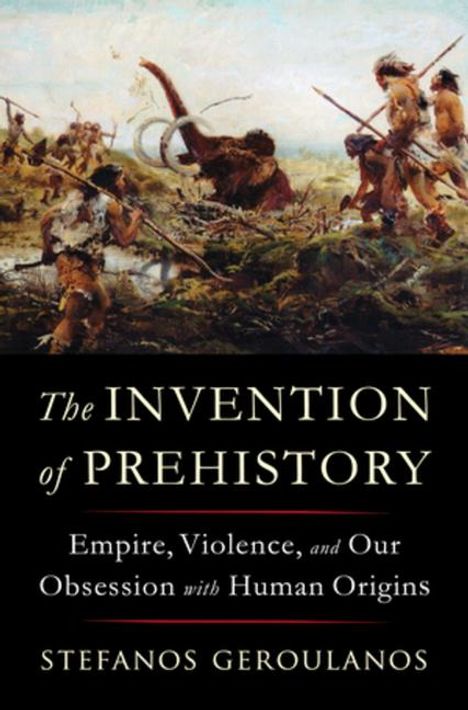Stefanos Geroulanos: The Invention of Prehistory, Gebunden
The Invention of Prehistory
Buch
- Empire, Violence, and Our Obsession with Human Origins
lieferbar innerhalb 1-2 Wochen
(soweit verfügbar beim Lieferanten)
(soweit verfügbar beim Lieferanten)
Aktueller Preis: EUR 30,40
- Verlag:
- Liveright Publishing Corporation, 04/2024
- Einband:
- Gebunden
- Sprache:
- Englisch
- ISBN-13:
- 9781324091455
- Artikelnummer:
- 11752939
- Umfang:
- 512 Seiten
- Gewicht:
- 796 g
- Maße:
- 236 x 163 mm
- Stärke:
- 41 mm
- Erscheinungstermin:
- 2.4.2024
- Hinweis
-
Achtung: Artikel ist nicht in deutscher Sprache!
Weitere Ausgaben von The Invention of Prehistory |
Preis |
|---|---|
| Buch, Kartoniert / Broschiert, Englisch | EUR 18,15* |
Klappentext
Books about the origins of humanity dominate best-seller lists, while national newspapers present breathless accounts of new archaeological findings and speculate about what those findings tell us about our earliest ancestors. In this coruscating work, acclaimed historian Stefanos Geroulanos demonstrates how claims about the earliest humans not only shaped Western intellectual culture but gave rise to our modern world.The very idea that there was a human past before recorded history only emerged with the Enlightenment, when European thinkers began to reject faith-based notions of humanity and history in favour of supposedly more empirical ideas about the world. From the "state of nature" and Romantic notions of virtuous German barbarians to theories about Neanderthals, killer apes and a matriarchal paradise where women ruled, Geroulanos captures the sheer variety and strangeness of the ideas that animated many of the major thinkers of the eighteenth and nineteenth centuries, including Jean-Jacques Rousseau, Charles Darwin and Karl Marx. Yet as Geroulanos shows, such ideas became, for the most part, the ideological foundations of repressive regimes and globe-spanning empires. Deeming other peoples "savages" allowed for guilt-free violence against them; notions of "killer apes" who were our evolutionary predecessors made war seem natural. The emergence of modern science only accelerated the West's imperialism. The Nazi obsession with race was rooted in archaeological claims about prehistoric IndoGermans; the idea that colonialised peoples could be "bombed back to the Stone Age" was made possible by the technology of flight and the anthropological idea that civilisation advanced in stages.
As Geroulanos argues, accounts of prehistory tell us more about the moment when they are proposed than about the deep past-and if we hope to start improving our future, we would be better off setting aside the search for how it all started. A necessary, timely, indelible account of how the quest for understanding the origins of humanity became the handmaiden of war and empire, The Invention of Prehistory will forever change how we think about the deep past.

Stefanos Geroulanos
The Invention of Prehistory
Aktueller Preis: EUR 30,40

